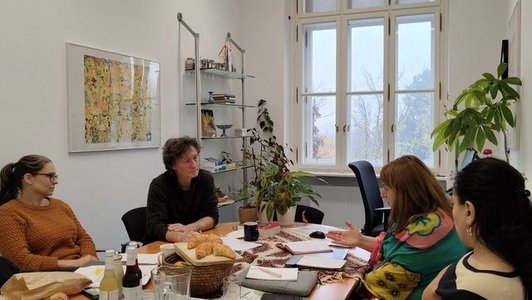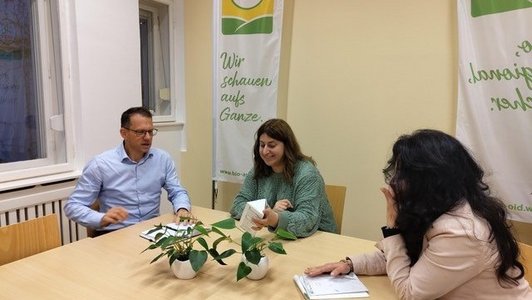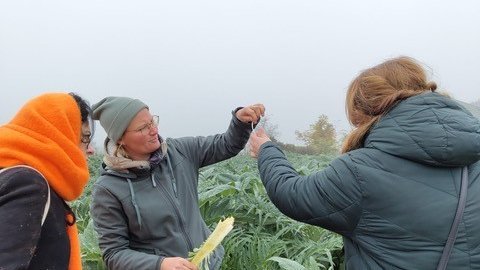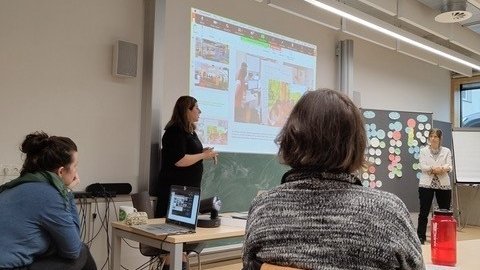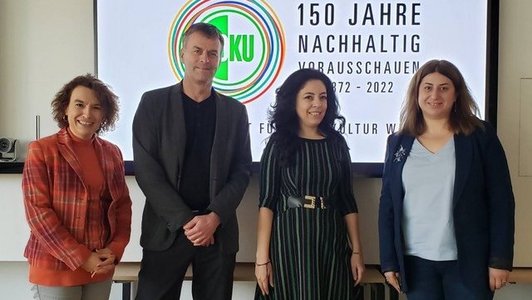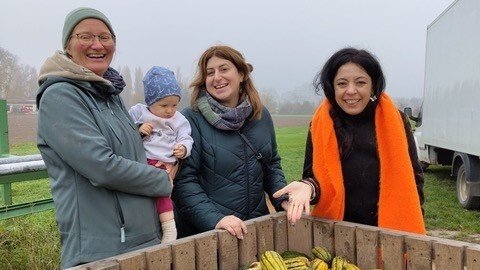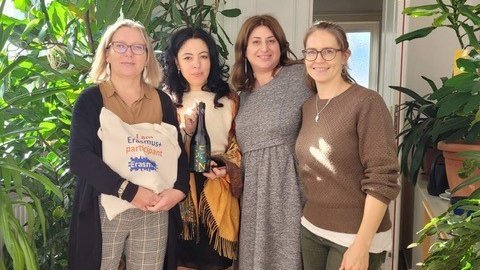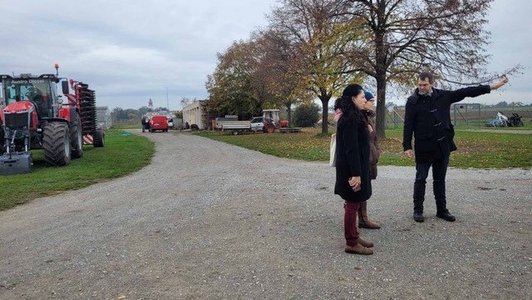SOAA project: Introduction to organic agriculture and organic agriculture education in Austria
Within the framework of Erasmus+, which aims to support the SOAA project, Armenian National Agrarian University (ANAU) vice rector for international relations and educational reforms Mariam Movsisyan and SOAA project lead Lusine Nalbandyan visited BOKU university in Vienna and partner institutions of the project.
The series of working meetings that were held from 6 until 17 November 2022 started with Maria Wurzinger, the lead of the Austrian side of the project. The best possible ways of the project implementation were discussed with Mrs. Wurzinger. She has long-term experience in managing similar bilateral, international projects and expressed her willingness to visit Armenia and conduct program management training for the employees involved in the international projects of ANAU. A guide for the management and effective implementation of international projects will be created specifically for this purpose.
Next on the program was the meeting with Bernhard Freyer. Professor Freyer has a rich experience in organic farming, having designed and managed several experimental organic farms and sharing his experience. The main topic of discussion at this meeting was the creation and proper management of Akunq's student organic experimental farm. The question of having a competent and devoted manager of the farm was pointed out as the cornerstone of the stable operation of the student experimental farm.
During the visit, we had the opportunity to participate in the "Agriculture and Gender Issues" course of Professor Stephanie Lemke, during which Milena Klimek, coordinator of the Austrian side of the project, and Lusine Nalbandyan, lead of the project, gave a presentation. They presented on the previous BOAA project, the state of organic agriculture in Armenia, gender issues in the field of agriculture as well as details about the ongoing SOAA project. The presentations were followed by long Q&A and discussion sessions.
During the visit, several working meetings and discussions took place within the project team. Ways to improve the organic agriculture master program (OAMP) by providing participatory higher education were discussed, as well as questions regarding the creation of the student organic experimental farm of Akunq, in particular the questions of ensuring stability and introducing self-employment mechanisms.
Another important meeting was held with Thomas Guggenberger, representative of the quality management office of BOKU University. Mr. Guggenberger presented the features and structure of quality management at the university. Approaches, commonalities and differences regarding the quality management of ANAU were discussed.
A very important visit was made to the demonstration farm of BOKU, which occupies an area of 120 hectares, where both students and scientists carry out their research activities. During the meeting, we had the opportunity to tour the farm, fields and laboratories.
Professor Reinhard Neugschwandtner presented the design and implementation of scientific and field experiments, the management features of demonstration fields and the logistics required for field experiments. Mr. Neugschwandtner will also visit Armenia to conduct training for ANAU scientists and students on the design and implementation of scientific experiments and launch joint scientific experiments.
A separate meeting-discussion was held with BOKU vice-rector Karsten Schultz and the head of the international relations department, Margarita Calderon. During the meeting, we had the opportunity to get acquainted with the structure, characteristics and development vision of BOKU. Issues of continuous cooperation between universities within the framework of joint programs, Erasmus Mobility and other opportunities were discussed as well. It was highlighted that BOKU celebrated its 150th anniversary in 2022.
Undoubtedly, the visit to BioSchanze farm is of particular importance among the visits made by us. The farm is located on the outskirts of Vienna and has biodynamic, Demeter and organic certifications. The farm occupies an area of 5 hectares, the family started organic farming 11 years ago and they mainly grow pumpkins, cabbages, herbs and greens. Special attention was paid to old forgotten varieties and species to preserve agro-biodiversity. Cultivation on the farm is carried out in the greenhouse and open field.
An interesting meeting was also held with Bio Austria, the largest association of organic producers in Austria. The association has more than 14,500 members, provides consulting and educational services, and has its standard. Co-production with organic production is not allowed for association members. Austria is the world leader in organic agricultural production. About 25% of agricultural production is organic, which is a very high number, while Austria has more ambitious aspirations for the future.
The series of meetings, discussions and visits concluded with a visit to the APPEAR office, during which we mainly discussed program issues and details of the further implementation of the project. In general, all these events were aimed at increasing the effectiveness of the project implementation, studying the Austrian experience and providing the possible application in our local conditions. The program goals of ensuring participatory higher education and sharing knowledge for development will be possible to implement thanks to the use of borrowed positive experience and proper localization mechanisms.

